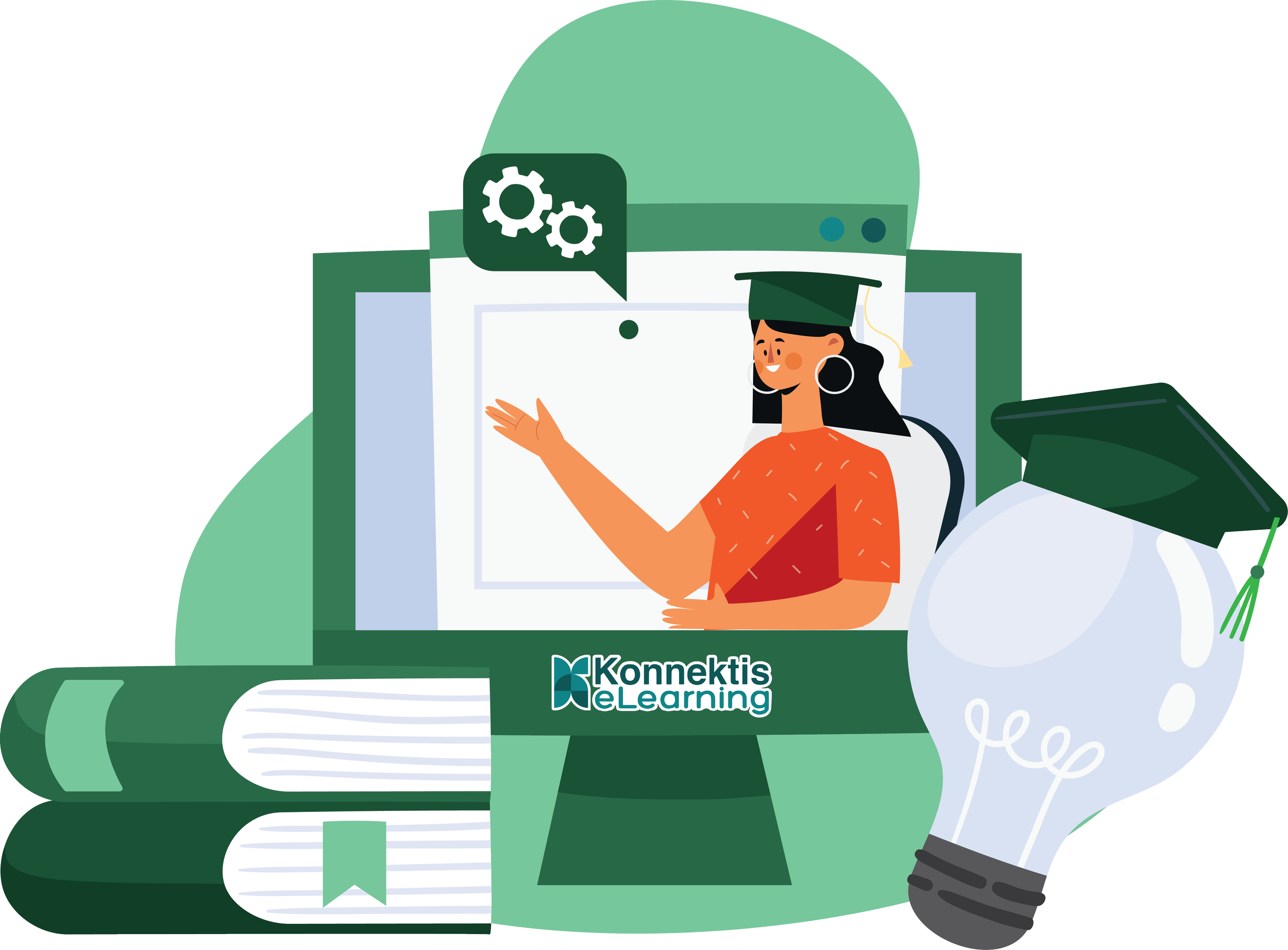What is eLearning? A Comprehensive Guide
We regularly discuss all the uses and needs for eLearning on the Konnektis blog, but it’s been a while since we broke down eLearning as a whole for any newcomers to the topic. So what exactly is eLearning, and why has it become such a pivotal force in modern education? Let's dive into everything you need to know about this revolutionary approach to learning.
Understanding eLearning
At its core, eLearning is any form of education or information acquisition through electronic means. It's a versatile approach that includes various digital formats, from interactive courses to video lectures, all accessible from anywhere with an internet connection.
Key Components of eLearning
Online Courses
Structured classes offered by educational institutions, businesses, and organizations form a cornerstone of eLearning. These courses typically feature an online course in the form of a series of digital documents, videos or an interactive course built in a piece of software such as Storyline, with regular assessments to track progress, and direct communication channels with tutors. This structured approach ensures learners stay on track while maintaining the flexibility of online learning.
Webinars and Virtual Classrooms
Live, interactive sessions enable real-time communication between instructors and learners through various digital platforms. These dynamic learning environments facilitate instant feedback and collaborative discussions, creating an engaging virtual classroom experience that mirrors traditional face-to-face instruction.
Learning Management Systems (LMS)
These platforms serve as the backbone of eLearning, providing essential tools for creating and delivering content. An LMS enables instructors to track learner progress, conduct assessments, and manage educational resources efficiently. This centralized approach ensures a seamless learning experience for both educators and students.
Interactive Content
Modern eLearning incorporates numerous engaging elements to enhance the learning experience. Educational videos and animated content bring concepts to life, while simulation games and interactive assessments help learners practice and reinforce their knowledge in engaging ways.
Benefits of eLearning
Flexibility and Accessibility
One of the most significant advantages of eLearning is its incredible flexibility. Learners can study at their own pace and access content from anywhere, making it easier to balance education with work and personal commitments. This accessibility ensures that education can fit into even the busiest schedules, democratizing learning opportunities for everyone and ensuring an inclusive learning experience.
Cost and Environmental Benefits
eLearning offers substantial advantages in terms of sustainability and cost-effectiveness. By reducing paper usage and eliminating the need for commuting, it significantly decreases environmental impact. Organizations also benefit from lower overhead costs, while content updates can be made instantly without wasting physical materials.
Enhanced Learning Experience
Modern eLearning platforms leverage cutting-edge technology to create engaging learning experiences. AI-powered adaptive assessments personalize the learning journey, while safe practice environments allow learners to experiment without fear of failure. Gamification elements keep learners motivated, and real-time data analytics help track progress effectively.
Social Learning Opportunities
Despite its digital nature, eLearning promotes rich social interaction and collaboration. Online discussion forums foster community learning, while peer feedback systems help learners gain new perspectives. Collaborative projects and virtual study groups create opportunities for meaningful connections, proving that digital learning doesn't mean learning alone.
The Future of Education
eLearning has become transformative across numerous sectors, from corporate training to higher education, schooling, and professional development. Whether used independently or as part of a blended learning approach, it continues to revolutionize how we acquire knowledge and skills.
As technology continues to evolve, eLearning will undoubtedly play an even more significant role in shaping the future of education. Its adaptability, accessibility, and interactive nature make it an indispensable tool in modern education. For organizations and individuals alike, embracing eLearning isn't just an option, but a essential for modern learning.

